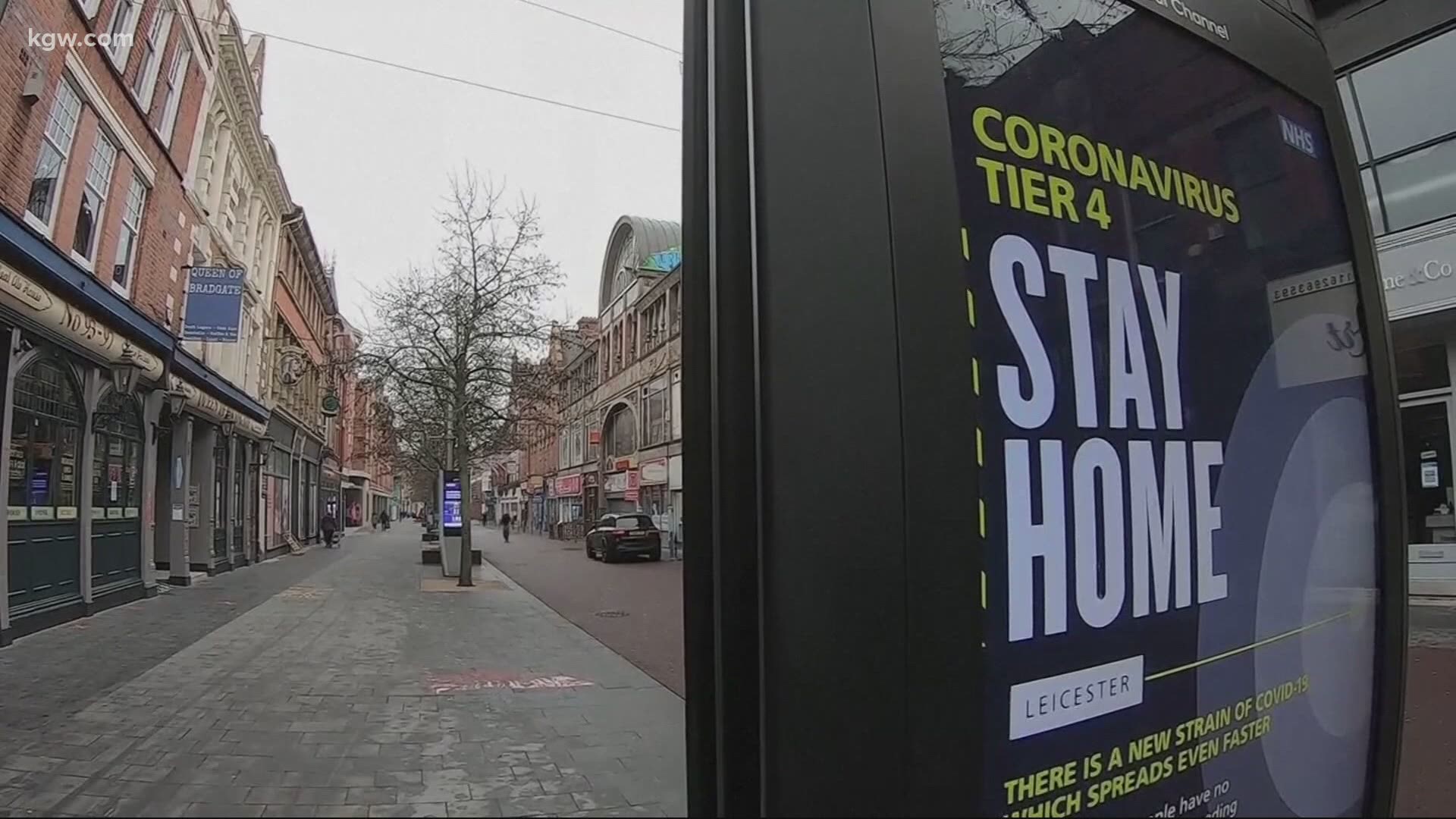PORTLAND, Ore. — It's been two weeks since a routine screening of staff at the University of Portland turned up the first Oregon case of the COVID-19 variant first discovered in the United Kingdom. Since then, two other cases have been discovered.
This variant is considered to be more contagious, scientists report, because it has several mutations that affect the outside spike protein, which makes it easier for the virus to lock onto human cells.
"These mutations of the coronavirus, that are more transmissible, that are 50% or 70% more transmissible, should be frightening to the public," said Dr. Richard Corsi, an internationally recognized expert on the airborne transmission of viruses and a professor at Portland State University.
He said that while the symptoms of the new variant are no more severe, the fact that more people can get it is concerning.
"Even if they're not more deadly, the greater number of people infected means much more deaths," he said.
Corsi stressed that with new variants emerging, it's more important than ever we take precautions.
"We need to quadruple down on all the things many of us have been saying for almost a year now," said Corsi. "We need to quadruple down on all those to reduce our inhaled dose."
Keep maintaining that six feet of physical distance. Wear a face covering when outside of your home. Make sure it's not just any face mask.
"We should be doing everything we can right now to be wearing better masks... two layer and three layer masks and making sure our masks fit as well as possible," Corsi said.
Also, reduce the amount of time you spend in essential indoor environments like the grocery store.
"If it normally takes you 30 minutes to go to the grocery store, try to cut that as much as you can because the longer you're in an area with an infector, the greater the chance for infection," he said.
Even with vaccines rolling out, Corsi said we need to keep our guard up more now than ever.
"Essentially it's a war at this point and the virus is out-pacing us," said Corsi. "It's ahead of us and we're having a hard time catching up."

